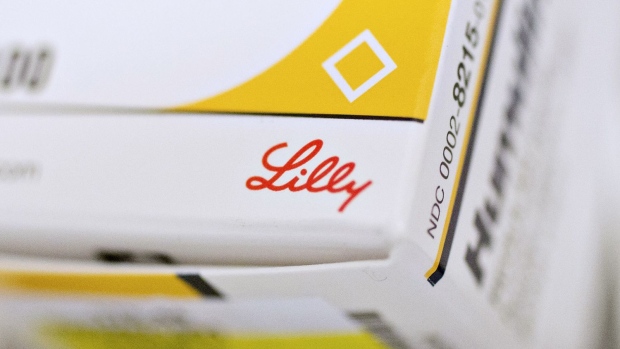Jan 29, 2021
Lilly gains after antibody sales boost fourth-quarter earnings
, Bloomberg News

Eli Lilly & Co. rose Friday as sales of its COVID antibody treatment helped fourth-quarter profit and revenue beat analysts’ estimates.
Adjusted earnings for the quarter were US$2.75 a share, Lilly said Friday, while analysts had expected US$2.38 a share. Revenue was US$7.44 billion, compared with the average projection of US$7.3 billion. The shares gained as much as 3.8 per cent as of 9:40 a.m. in New York.
Lilly and other drugmakers have been struggling to navigate the pandemic that’s created huge demand for COVID treatments and vaccines while discouraging patients from visiting hospitals and doctors’ offices for other needs. New starts on medications have been subdued in the U.S. and other major markets, Chief Executive Officer David Ricks said.
“That said, we’ve managed to deliver,” he said in an interview. “It was a strong quarter in a complicated year.”
Lilly’s U.S. revenue increased with sales of key products such as Trulicity and Jardiance for diabetes and Taltz for psoriasis. That was partially offset by lower volume for products including Forteo for osteoporosis and Tradjenta, another diabetes drug.
Lilly’s margin profile “represents one of the strongest expansion stories in pharma, with the potential for mid-teens EPS growth,” Cantor Fitzgerald analyst Louise Chen said in a note to investors.
Antibody Sales
The company reported sales of US$871 million for bamlanivimab, its monoclonal antibody treatment for COVID-19. It was the company’s first quarter of reporting sales for the drug that’s hoped to head off severe cases in high-risk people.
Most of the antibody’s sales were in the U.S., with some contribution from Canada, Ricks said. Many other countries are also adopting bamlanivimab, he said.
Lilly recently reached a deal for another 500,000 doses with the U.S. as part of a US$625 million change to an existing army contract. That will bring the total U.S. government commitment to 1.45 million doses, Lilly said.
“We didn’t get into this to drive earnings or anything. We did say there’ll be a modest return to shareholders,” Ricks said, “but mostly we did this to help the world conquer this horrible pandemic.”
